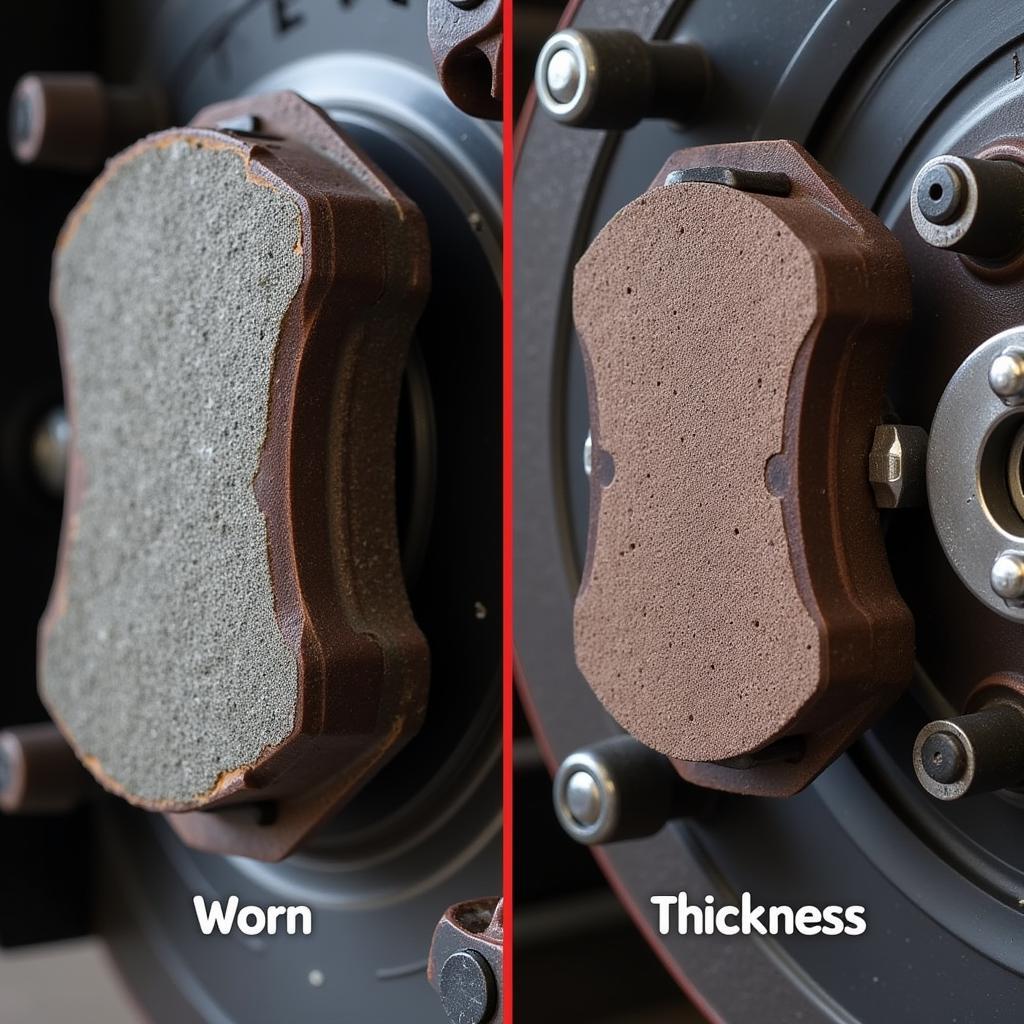Identifying car troubles early can save you a lot of money and hassle. One of the first signs of trouble is often an unusual noise. Learning to recognize Different Sounds Mechanical Problems On Cars Make can help you pinpoint the issue and address it promptly. This article will guide you through some of the most common car noises and their potential causes.
Just after starting your car, a rhythmic clicking could indicate a failing CV joint, especially when turning. Check out more about common car problems on our site.
Understanding Common Car Noises
Cars, like any complex machines, produce a variety of sounds. Some are normal operating noises, while others signal potential problems. Understanding the difference between these sounds is crucial for proper vehicle maintenance. Why do cars have problems. Being able to identify different sounds mechanical problems on cars make empowers you to take action and prevent further damage.
Squealing Brakes
One of the most common and easily recognizable car noises is a high-pitched squeal when braking. This often indicates worn brake pads. However, a squealing noise can also be caused by glazed brake rotors or even moisture on the rotors.
 Squealing brakes indicate worn brake pads
Squealing brakes indicate worn brake pads
Grinding Noises When Braking
A grinding sound when applying the brakes is more serious than squealing. It usually indicates that the brake pads have worn down completely, and metal is grinding against metal. This can damage your rotors and significantly reduce braking effectiveness.
Clicking or Popping Sounds From the Wheels
A clicking or popping sound coming from your wheels, particularly when turning, could indicate a problem with the CV joints. These joints connect the axle shafts to the wheels and allow for flexibility during steering. Damaged CV joints can eventually lead to axle failure.
Knocking or Tapping From the Engine
Knocking or tapping sounds from the engine can be caused by a variety of issues, from low oil levels to more serious problems like worn rod bearings or piston slap. These sounds often become louder as the engine speed increases. Ignoring these noises can lead to catastrophic engine failure. For more information on how professionals identify issues like this, see how do mechanics diagnose mechanical problems with cars.
Whining Noise From the Transmission
A whining noise coming from the transmission, especially when accelerating or decelerating, can indicate a problem with the transmission fluid, gears, or bearings. This could be a sign of a failing transmission. You can find more information about transmissions on our worst cars for transmission problems page.
Hissing Sounds
Hissing sounds can indicate a variety of leaks, from coolant leaks to vacuum leaks. A hissing sound coming from the engine compartment could be a sign of a leaking hose or a problem with the cooling system.
Rumbling or Growling Noises
Rumbling or growling noises, especially when accelerating, could indicate a problem with the exhaust system, such as a hole in the muffler or a loose exhaust pipe.
Expert Insights
“Ignoring unusual car noises can lead to costly repairs down the line,” says automotive expert, Robert Johnson. “Paying attention to the sounds your car makes and addressing them promptly is crucial for maintaining its health and longevity.” Another expert, Susan Miller, adds, “Regular maintenance and timely repairs can prevent small problems from turning into major headaches.”
Conclusion
Recognizing different sounds mechanical problems on cars make is a valuable skill for any car owner. By understanding these sounds, you can identify potential problems early and prevent them from becoming more serious and expensive to fix. Remember, regular maintenance and prompt attention to unusual noises are key to keeping your car running smoothly. If you need further assistance, connect with AutoTipPro at +1 (641) 206-8880 or visit our office at 500 N St Mary’s St, San Antonio, TX 78205, United States. You can find helpful resources on our site concerning bearing problem in car.




Leave a Reply